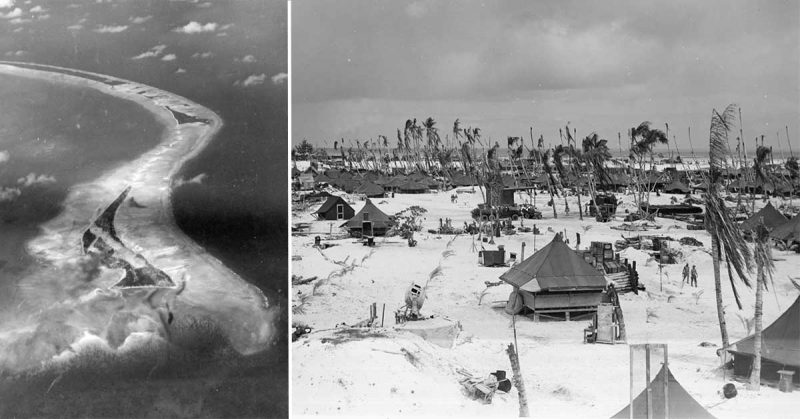Ronald W. Vosmer was a Private in the Marines during World War II. He was 22 when he fought the Japanese on the island of Betio in the Tarawa Atoll in the Gilbert Islands (now part of the Republic of Kiribati). It is thought that Vosmer died on November 20, 1943, along with 1,000 other Marines and sailors who died when the 2nd Marine Division fought to take the island.
While the effort was a major US military victory two years before the end of the war, giving the US a launching point for assaults on the Marshall Islands and the Caroline Islands, Betio was one of the islands where about 500 men have already been buried under the blowing sands of the island.
“Only half of the soldiers were recovered at that time, and frankly the rest were kind of swept under the rug,” according to Clay Bonnyman Evans, 54, who works with the non-profit organization, History Flight Inc. History Flight works to locate, identify and recover the remains of US soldiers left on battlefields and in unmarked graves in foreign countries. “The families were confused,” said Evans, “because they didn’t know some of the bodies were still there.”
Ron Harrison witnessed firsthand the pain that caused families back home. He is Vosmer’s nephew.
“I think it really set the family back as far as losing him in the war,” Harrison said. “It was my mom’s brother, and he wasn’t really talked about very much.”
History Flight contacted Harrison and his sister, LuLane, to retrieve DNA samples. Harrison and his sister are Vosmer’s two nearest living relatives. The samples helped History Flight positively identify the remains they recovered from the atoll as being Vosmer’s.
So, after over 70 years, Vosmer’s remains are finally coming home to rest. The funeral was scheduled for 11 am Saturday, October 8, 2016, at Fairmount Cemetery in Denver, CO. The service was open to the public.
“We’re finally able to reunite him with my grandparents,” said Harrison, 66, a retired teacher from San Martin, Calif. “All we knew before this was that he was killed in the war, so it’s been this missing piece of family history all these years.”
Evans’ grandfather was recovered next to Vosmer, buried in a trench known as Cemetery 27.
The effort was complicated by the fact that the atoll is highly impoverished with 25,000 people living on one square mile of sand, The Denver Post reported.
But History Flight was undeterred and began their exacting archaeological dig.
“The whole thing was a ‘eureka moment’ of the highest order,” Evans said. “It’s hard, slow work but the remains are remarkably well preserved, being about 4 feet down in a coral sand environment without many microorganisms. There are helmets, ammunition, canteens, and if you get lucky, a dog tag. I pulled a chunk of metal out of my grandfather’s pocket that was his Zippo lighter, which he had scratched his initials on.”
Vosmer’s remains were transported to Denver by a military aircraft and transferred to a hearse by a Marine Honor Guard. Vosmer will be interred next to his parents while the Marine Honor Guard, Patriot Guard Riders volunteers, American Legion and families of other recovered or MIA soldiers participate and observe.
“These people really put their whole lives into this. There’s a tradition in the Marine Corps that you never leave your guys behind, dead or alive. And everyone that does this work just cares a hell of a lot about getting it done, and getting it done right,” said Evans of History Flight’s $2.5 million recovery efforts, which have mostly been funded by private donations.
